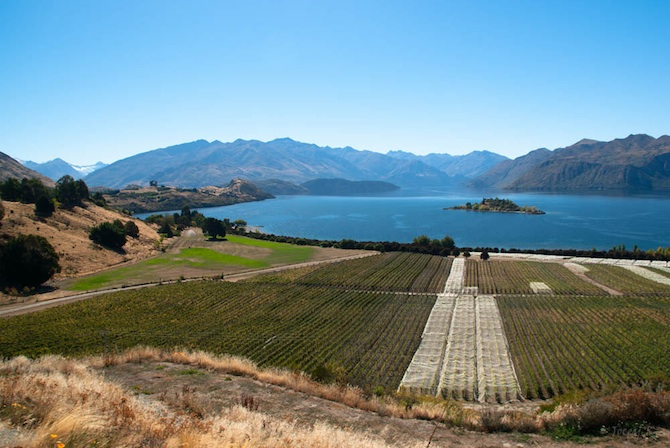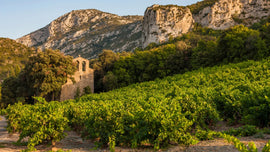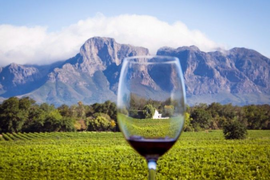Rosé from the South
This month we’re taking a trip to the Southern Hemisphere. Numerous wine-producing areas exist south of the equator, with Argentina, Chile, Australia, New Zealand, and South Africa leading the way. In these regions, the grape harvest typically takes place from February to April, corresponding to late summer and early autumn. Grapes in the warmer parts ripen more quickly, allowing for an earlier gathering, while those in cooler regions are usually picked closer to April. As we (in the Northern Hemisphere) transition into fall, the Southern Hemisphere is emerging from winter, eagerly anticipating spring and the imminent bud break, expected to occur any moment now.
Argentine rosé was once a choice solely for summer, but in recent years the category has quietly grown more sophisticated, earning plenty of acclaim in the process. For a long time rosé was only consumed by a small portion of the market that wasn’t too concerned with flavor, but now Argentine rosé has found its place on tables all year round, and the world is beginning to discover an exciting new facet of the Argentine wine scene.
South Africa’s first rosé was made in 1949, and this country’s rosés are generally intended to be food wines, designed to balance with dishes, but still be fresh and light. The country’s deeper, juicier rosés pair well with the traditional braai (grill), which exclusively uses charcoal or wood to impart smoky flavors.
Zorzal is a young, boutique winery that was founded in 2007 by the Michelini brothers, Gerardo, Matias, and Juan Pablo (“Juampi”). They completed their first vintage in 2008. The winery and vineyards are located in a section of the Uco Valley called Gualtallary (“Gualta”), outside the town of Tupungato, at approximately 4,500 feet above sea level. The Zorzal winery is the highest winery in Mendoza. The estate consists of 70 hectares on a unique blend of sand, stones, and limestone and is planted to multiple varieties including Malbec, Pinot Noir, Sauvignon Blanc, and a few others. The grapes are all hand harvested and Juampi’s vision is to have a light hand in the winemaking to let the fruit and terroir shine. The winery practices organic methods in the vineyards and uses only indigenous yeast in the winemaking process.
Wolf & Woman is a small boutique winery in South Africa that focuses on discovering the magic of the old vines in Swartland that provide an exceptional expression of the schist, granite and iron soil in which they grow. As shared custodians of the lands that house the vineyards, they also ensure that they partner with growers who farm sustainably in order to produce top quality grapes without compromising the environment.
Once the grapes are ready for harvest, winemaker Jolandie guides the grapes through the cellar with minimal intervention. To that end, they only use indigenous yeasts and no additives except a touch of sulfur.
Think Pink,
Carrie Upson
|
Zorzal Terroir Unico Pinot Noir Rose 2022 |
|
|
Region/Country of Origin: Gualtallary, Uco Valley, Mendoza, Argentina |
About the Winery: Zorzal tends to pick its grapes a little earlier than most in Mendoza to retain freshness and acidity in their wines instead of the overblown ripeness that is too often seen. They are already considered to be a rising star in Argentina with their focused wines and enticing expression of multiple varieties above and beyond their stunning Malbecs. They also make a series of wines called EGGO, consisting of Malbec, Cabernet Franc, Sauvignon Blanc, and Pinot Noir completely fermented and aged in large concrete eggs. The EGGO wines are more limited in production. About the Winemaking: This 100% direct press pinot noir rosé comes from a limestone rich vineyard. The pinot is destemmed and the wine is macerated on skins for one day with no lees contact and native yeast, then it is aged in stainless steel tanks and is lightly filtered before bottling. Tasting Notes: The pale pink wine is crisp and vibrant with notes of strawberry, raspberry, and fresh cut watermelon that is held up by a mineral backbone. The finish is refreshing with hints of ripe fig, tangerine, and crushed wet rock. |
|
Winemaker: Juan Pablo Michelini |
|
|
Price per bottle / Price per case: $18.99 btl / $205.09 case |
|
|
Suggested Food Pairing: Ceviche, Guacamole and chips, spicy curry. |
|
|
Wolf & Woman Grenache Rosé 2023 |
|
|
Region/Country of Origin: Swartland, Western Cape, South Africa |
About the Winemaker: Born in Cape Town as part of a set of twins, Jolandie Fouche was raised in Swartland, where she spent the larger part of her childhood roaming the farm and falling in love with the vineyards. She studied agriculture in college and worked harvests in Australia and California. After more than a decade of earning her stripes in the South African industry, Jolandie decided to turn her attention to her passion project, Wolf & Woman Wines. About the Winemaking: All of the grapes were picked early in the morning, packed in crates and allowed to spend 24 hours in a cold room. The following day the grapes were pressed gently and as whole clusters to obtain the perfect color and to secure high-quality juice. The free run juice was drained into a stainless-steel tank to settle for 24 hours. No enzymes were used during the settling process. The juice was racked from the thick lees, first pick goes to a stainless-steel tank and the balance to 500 L old French oak barrels, after which the wine fermented naturally. After fermentation, the wine was given a low dose of sulfur and spent a total of 7 months on the lees before it was bottled. Tasting Notes: Color: Melon Nose: Aromas of cherry, pomegranate and watermelon Palate: Flavorful, crisp with a long, dry finish. |
|
Winemaker: Jolandie Fouche |
|
|
Price per bottle / Price per case: $20.99/$226.69 |
|
|
Suggested Food Pairing: Chicken street tacos, Salad of Spring Green, Beet, Goat Cheese, with Balsamic Vinegar, Beef and Pork sausage, |
|





